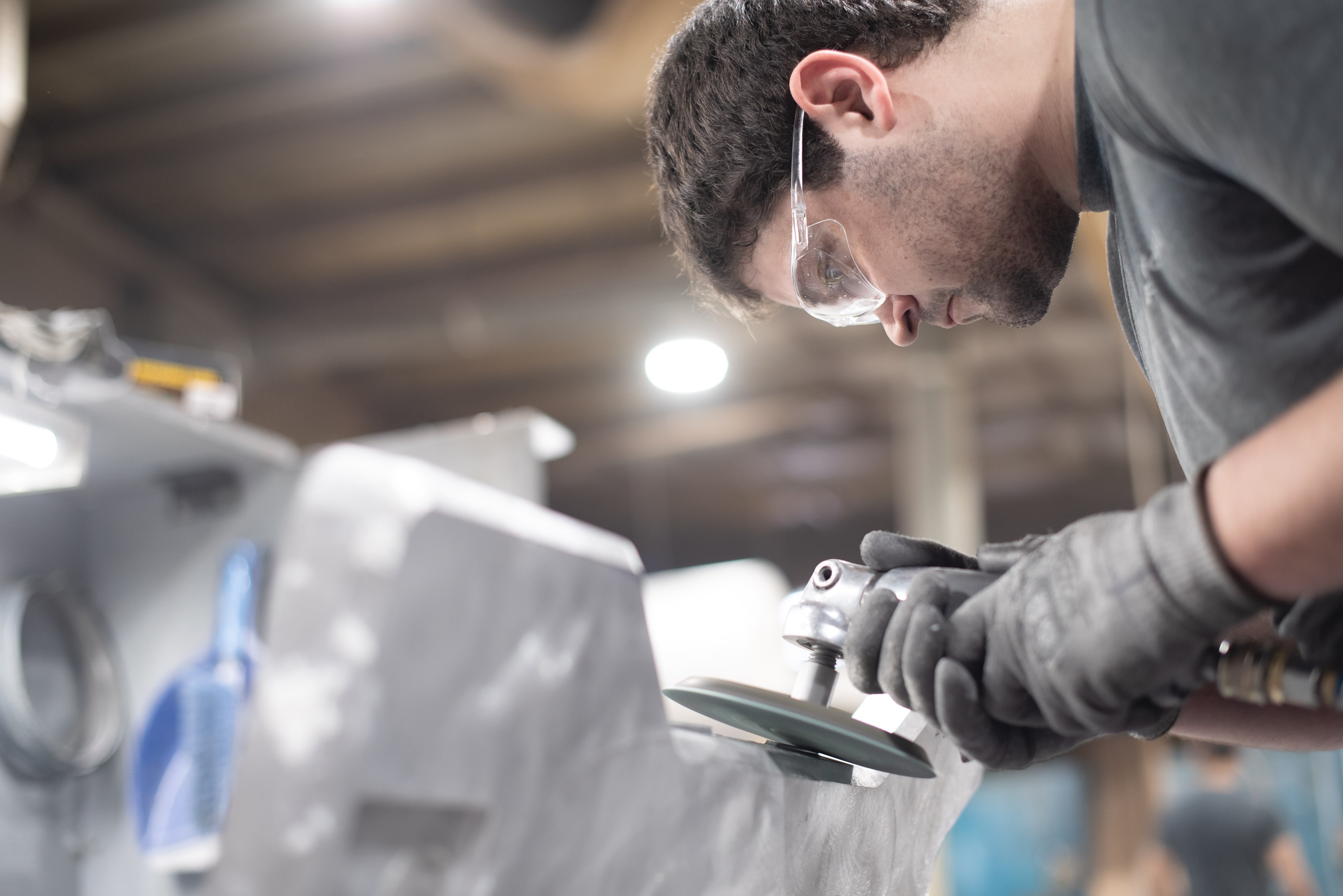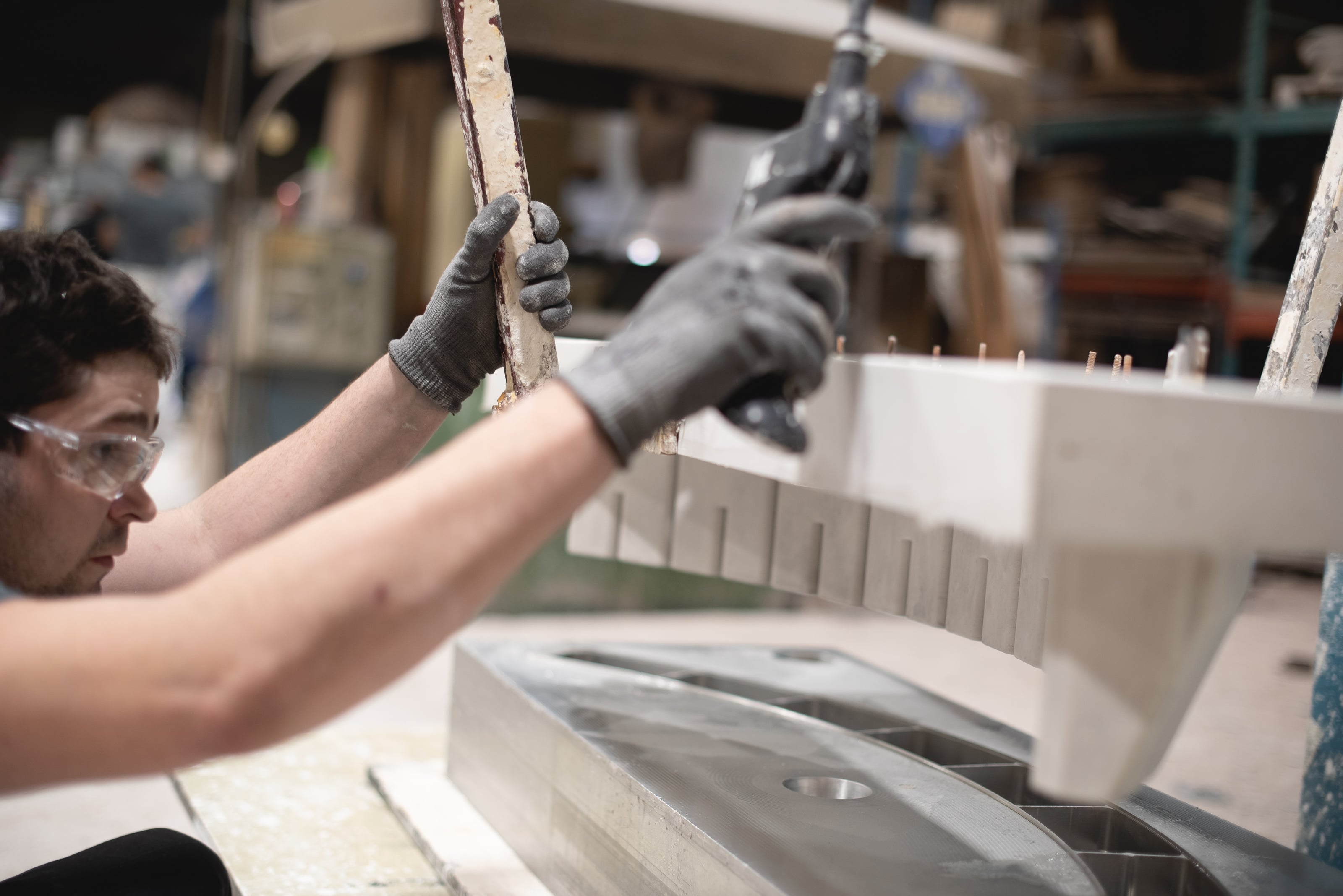A Proven and Unique Process
The Précicast plaster molding process uses demountable two-part molds, similar to sand-casting molds. If cores are required, they are made separately in core boxes and then inserted into two half parts to form the required cavities.
Plaster molds are made by mixing plaster, refractory materials and water. This mixture is then cast onto the models and left to harden for 5 to 15 minutes.
The drying process is a critical step in mold making as all the moisture must be removed to prevent contamination from the gas that is released from the steam when metal is poured into the molds.
The insulating properties of the dried plaster molds keep the metal from cooling too quickly resulting in a slow solidifying process and enabling the aluminum to flow into the thinnest mold sections. Furthermore, the permeability of the mold allows the gas to escape from the metal.
Once the metal is fully solidified, the molds are carefully dismantled and the cast and feed systems are removed. The finishing process involves removing the separation lines, sanding or acid washing.




